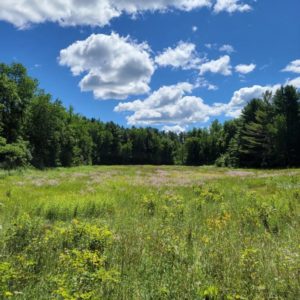When the Land Owns Us

Edgar Villanueva, a non-profit leader and member of the Lumbee Tribe of North Carolina, wrote the book, Decolonizing Wealth, to share indigenous wisdom about the ways we acquire, manage, and spend money. At one point, he quotes the philosopher Derek Rasmussen, who observed, “What makes a people indigenous? Indigenous people believe they belong to the land, and non-indigenous people believe the land belongs to them.”
I see myself in this quote. I grew up thinking either you owned something or you didn’t; that rights flowed from that fact of ownership; that a good fence between mine and yours made good neighbors. But this question pushed me in another direction. What would it mean for the land to own me? What if I belonged to the land? These questions reach another level of depth for me when I think of the sacredness of a place. What does it mean for a place of great beauty and personal meaning to have a claim on me?
When we think of what we own, it’s a singular relationship: I own this. But a question like “how do I belong to the land?” opens a myriad of possibilities. To my mind, the idea of owning land leads to an ethics of independent rights — I can do whatever I want on my land. The notion that the land owns me changes my ethics. It causes me to ask: what are my responsibilities in this web of relationships?
I want to pause here to note a change in my language. When I spoke of owning the land, I made a declaration — these are my rights. But when I spoke of the land owning me, I turned to a question — what are my responsibilities? In realizing that I belong to the land, my mind moves from a declarative stance to an inquisitive one.
This sense of responsibility has affected me in other ways. As a philanthropist, I think about my own motivations and priorities for giving. I’m now noticing a change in my own pattern of giving. Previously, I gave to causes. Now, I give to places. The more grounded and connected I feel in a place, the more I root my giving there.
As we move from thinking that land belongs to us to feeling that we belong to the land, our generosity changes. We understand the web of relationships that shape our lives. We experience the healing of that web of relationships. We work for restoration and renewal. We strive to be “the repairer of the breach,” as the prophet Isaiah put it. The land to which we belong shapes our giving.
How does your deep love for a place shape your generosity? How does the call of a sacred place affect your giving? How does it show up in the ways you live?
About the Author:
Andrew Warner, Generosity Outreach Officer, United Church of Christ
